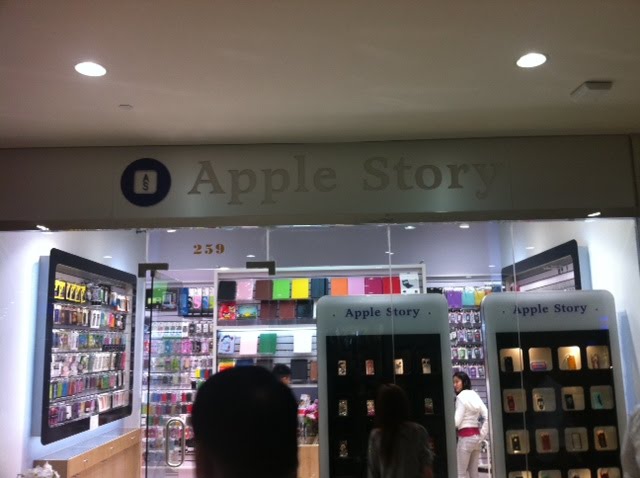
Ever since the rise of the iPod, Apple has had to routinely deal with knockoff Apple products. But over the past few months, a new problem has emerged – knockoff Apple Stores.
Recently the public became abreast of just how widespread these fake Apple Stores are. While only 5 stores were initially believed to have been in operation, a grand total of 27 have now been uncovered in the Chinese city of Kumming.
This problem, however, isn’t only relegated to China. Apple has also encountered Apple Store clones here in the US and in early August Apple filed a lawsuit in the Eastern District of New York looking to shut down Apple Store clones in the US and China.
For instance, the photo above is of a retail front in Flushing, Queens that goes by the name “Apple Story” and sells a bevy of knockoff Apple products and accessories.
When Apple initially filed its lawsuit, the complaint was sealed so there wasn’t much information to divulge aside from the fact that a lawsuit had been filed.
Now, those court records have been unsealed and Reuters provides us with some interesting details regarding the suit in question.
Court records reveal that Apple has already seized unauthorized iPod, iPhone and iPad accessories sold by two stores in the Flushing neighborhood of the New York City borough of Queens, and is now demanding the names of its customers and suppliers. It is also asking one of the defendants — Apple Story — to change its name to keep consumers from confusing the unauthorized gear with Apple-sanctioned products..
The trademark infringement lawsuit was first filed on July 25 against Apple Story and Fun Zone Inc., both owned by New York resident Janie Po Chiang, who is named as a co-defendant in the suit, along with Fun Zone manager Jimmy Kwok.
Reuters notes that Apple’s trademark infringement lawsuit was initially filed under seal as to prevent the copycat retail stores from being tipped off that they were being watched. Consequently, Apple was able to seize the counterfeit merchandise before the stores were able to switch things up.
Over the past few weeks, Apple representatives made a number of visits to the two stores whereupon they purchased a number of knockoff Apple products that all made illegal use of Apple’s trademarks. In an effort to appear as genuine as possible, these knockoffs were even marked with the phrase “Designed by Apple in California. Assembled in China.”
The headsets came with packaging that was “nearly an exact duplicate” of that for genuine Apple goods, the lawsuit said.
“Defendants are trading on and receiving the benefit of the goodwill Apple has established in the Apple trademarks through considerable labor and expense over many years,” Apple said in its amended complaint.
Reuters also notes,
The parties are moving toward an agreement to settle the case, court records show, but nothing has been finalized. In addition to an agreement to stop counterfeiting goods, Apple is seeking a complete list of all individuals or entities who either purchased or sold counterfeit products, an order to destroy any remaining counterfeit products and triple monetary damages.
Apple clearly isn’t playing around and isn’t content to have the two stores simply stop selling the counterfeit merchandise. Apple wants to bite off the head of the counterfeit dragon, so to speak, to prevent similar stores from popping up in the future.





Mon, Aug 22, 2011
Legal, News